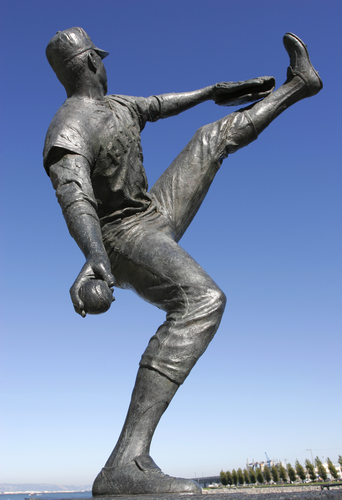
Generally, when a mistrial is granted in response to a defendant’s motion, any double jeopardy claims are waived. However, the standard for double jeopardy, following a mistrial granted as a result of a prosecutor’s conduct is whether the actions were intended to provoke the defendant into asking for a mistrial. Oregon v. Kennedy, 456 U.S. 667 (1982). Basically, did the prosecutor try to goad the defense –if so, double jeopardy applies. If the prosecutors “merely” made a mistake, even the kind a law student wouldn’t make, then Clemens will face another jury trial.
Rarely does a DOJ prosecutor find herself subjected to an inquiry of her intentional conduct. Prosecutors take an oath to defend “the Constitution of the United States against all enemies, foreign and domestic. …” and then spend their professional careers seeking to convict individuals who intend to and do commit crimes. Starched white shirts, dark-blue suits and a gold badge. On the other hand, the DOJ attorneys are accused, by the defense, that they acted in bad-faith and intentionally contravened the Judiciary and the Constitution.
In the Clemens’ case, the prosecutors have to show that playing the excluded and prejudicial video tape to the jury was not an act intended to make Clemens seek a mistrial. How can the prosecutors do that? Easy. All they have to do is admit that they made a huge mistake. Not surprisingly, the prosecutors did exactly that. In response to Clemens’ double jeopardy motion, the prosecutors wrote “[t]he government accepts full responsibility for its oversight, and regrets the burdens that error has placed on this court and the defendant.” The prosecutors admitted their blunder and apologized to Judge Walton and Clemens. If Judge Walton believes in the sincerity of the prosecutors explanation and mea culpa for their “mistake”, double jeopardy will not apply.
The original conduct is almost always easier to deal with than an attendant perjury or obstruction charge as a result of not accepting responsibility and lying about it. That’s what the Clemens’ first trial was about and so will the second.
COMMENT FROM THE SIDEBAR
On September 2, Judge Walton determined that Clemens’ may be reprosecuted. During oral argument, the lead prosecutor explained that his father was at the trial and he “would never dishonor my family by violating a court ruling.” Judge Walton asked why Clemens should bear the expense of the government’s costly mistake, however, he only ruled on the issue of double jeopardy.